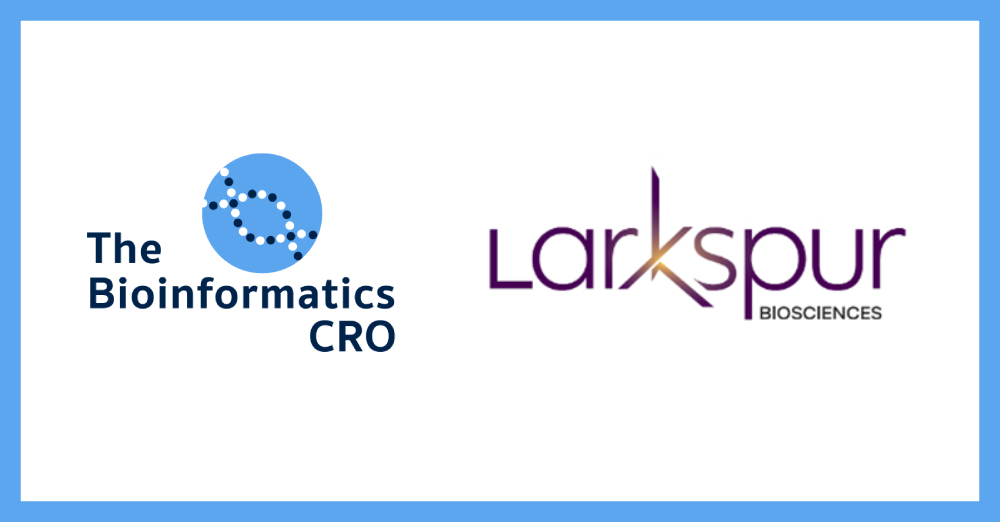
Bioinformatics for Cancer Research
The Bioinformatics CRO made the 2024 Inc 5000 list! Find our announcement here on LinkedIn.
To continue our series exploring some of the great work the CRO has contributed to over the years, we’d like to highlight a project that a team of our expert bioinformaticians has worked on, each in their own areas of expertise, with special kudos to Meik Kunz. This project is in collaboration with Larkspur Biosciences to characterize unique immune evasion signatures in different cancer types, including colorectal cancer.
Larkspur is committed to developing small molecule therapies for cancer patients based on a deep understanding of the evasive properties of cancer cells that help them to create a protective niche. Larkspur’s small molecule therapies target enzymes that control cancer cell state and fitness, with the potential to complement targeted and immune therapy for cancer patients and drive durable responses. Discovering the cancer indications and patient cancer characteristics that are dependent on these pathways is essential to match therapies to the patients most likely to benefit. For this reason, precision treatments for individual cancers and patients are extremely important to the future of the field.
Starting in 2023, we’ve worked with Larkspur to provide bioinformatics support on a project focusing on identifying and characterizing immune evasion signatures specific to different cancer types. Previous studies have indicated the importance of understanding cancer cell gene expression how that drives protection from many physiological mechanisms of cell death. Characterizing the genetic signatures of tumors which do and do not respond to specific immunotherapies is a necessary first step for the potential genetic identification of patients who will or will not respond to a treatment. If responsive patients can be identified using genetic biomarkers prior to the start of treatment, this allows for more effective treatment regimens and the choice of the most appropriate therapy for the patient.
By using TCGA gene expression data from heterogeneous cohorts, together we have been able to create multiple gene expression models for different cancer types which can accurately separate tumors into responders and non-responders to specific tested therapies. Further validation of genes represented in these signatures has led to identification of distinct evasion capabilities in these tumors.
The identification of distinct tumor evasion gene signatures is a major step forward in understanding the genetic makeup of cancer cells and the tumor niche. Larkspur is building on this work in the clinical development program of their lead program, an oral heterobifunctional degrader targeting the dark lipid kinase Pip4k2c, which was announced at AACR 2024. For more detail on this project, you can find their AACR poster here on their website.


